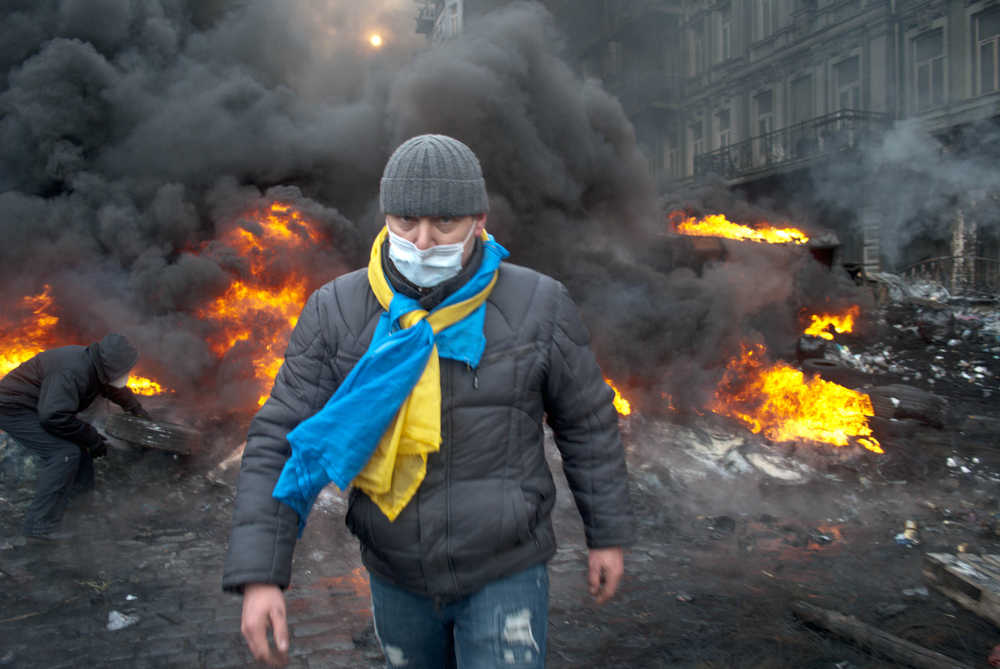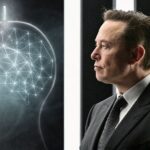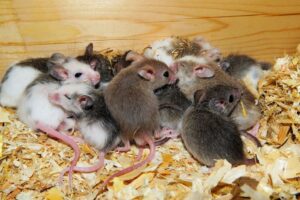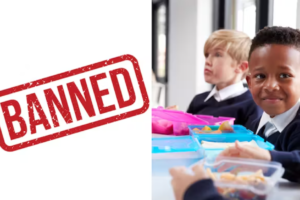In February of 2014, Ukraine witnessed its political landscape shift dramatically when a number of riots and protests took place, known as “The Euromaiden Revolution” (or “revolution of Dignity” to some).
Limited violence did take place, including unknown shootings, during the overthrow of Russian-friendly Ukrainian President Viktor Yanukovich’s stable (if according to some, problematic) leadership. What has filled the void since then involves a hodgepodge collection of ultra-nationalists within the nation, who in many cases are vehemently anti-gay, and in some cases include white supremacists or Nazi sympathizers.
Racism and overwhelming national pride and identity have served as fuel for the political landscape rising up to replace the one which was characterized previously by Yanukovich. However, the influence of such ideas have not remained confined to the realm of public opinion, but rather have seated themselves within influential positions inside of Ukraine’s government and administrative power.
These sentiments have taken hold within Ukraine so much, that its own parliament even voted to outlaw the St. George’s Ribbon – an emblem worn to commemorate those who liberated the Soviet Union from Nazi occupation, involving nearly seven million Ukrainian infantrymen who assisted the USSR in defeating the Nazis.
Ukrainian police have called themselves “Banderites” to signal to local far-right groups that they too are sympathetic to the cause of the nationalists, starting the hashtag “#IamaBandarite” trending on Twitter as a PR stunt to draw favour and camaraderie with the groups. Stepan Andriyovych Bandera was the head of a militant wing of the Ukrainian independence movement during the Second World War and a collaborator with the Nazi movement at the time.
National Police chief Serhiy Knyazev openly says that he indeed is a “Banderite”, along with the Interior Ministry and National Police spokesman Artem Shevchenko and Interior Ministry advisor Zoryan Shkyryak.
Yuriy Bereza was elected to the Verkhovna Rada (Ukraine’s parliament) in 2014 as an MP, and is a member of the Ukrainian party “People’s Front” which is often aligned with fascist and far-right positions and figures. Bereza responded in 2017 when some MP’s objected to banning the St. George’s Ribbon that he would like to “grab a machine gun and shoot those bastards”.
Other leading voices within the People’s Front party include Andriy Parubiy, who in the 90’s co-founded the Social-National Party with Oleh Tyahnybok, another fascist extremist. Parubiy has served as Chairman of the Ukrainian parliament since April of 2016.
Then there is the volunteer group, “Azov Battalion” who is accused of human rights violations. Azov is under the directive of group, “Ukraine Patriot”. Ukraine Patriot was started by Andriy Biletzky, a Nazi sypathyzer. Patriot of Ukraine sees Jews as well as other minorities as subhuman and supports a crusade against them of white Christians. They also prominently displays Nazi symbols on their logo.
These trends are a worrying signal that bring to question what role diversity or racial and religious acceptance will play in Ukraine’s future. Will Jewish Ukrainians or non-whites have any place there? One thing is for sure – the nationalist extremism doesn’t seem to deter NATO or western allies such as the United States, who continue to fund Ukraine’s military uprising – including the Azov Battalion – at a fervent pace.
The battalion has obtained grenade launchers from the United States and the Daily Beast reported that the U.S. is unable to keep far-right extremists from receiving weapons. Azov has posted video of themselves proudly welcoming NATO representatives to its nation.
Deceased former United States politician John McCain gave admiration to the Dnipiro-1 battalion, who is accused by Amnesty International of war crimes, including starving civilians as a means of warfare.
With undying support from Western allies like U.S.A. and their NATO allies along with surging nationalist pride and populism that is poised to dominate Ukraine’s political landscape, who is to stop ultra-nationalism from running amok in Ukraine? More importantly, what does this spell for human rights and civility in the future of the country?
Just recently on April 21st of 2019, Ukraine elected Volodymyr Zelensky, a Ukrainian television comedian to replace Petro Poroshenko as the nation’s President (its highest office). Zelensky’s own parents are Jewish, creating an interesting dynamic between himself and Ukrainian’s rising anti-semetic and Nazi-friendly tide.
How will Zelensky deal with the far-right nationalism that has swept the nation he now leads – and what will the response of its followers be to him as their new leader? The world will be watching Ukraine intently to see in coming months and years whether moderate sanity and civility win Ukraine’s culture wars, or it continues to take a turn down a much darker and less accepting path of racial and religious intolerance.
Akashic Times is the UK’s only online, fully independent not-for-profit newspaper that brings you real news from across the globe.
If you want to keep ahead of what is really going on in the world, subscribe to our newspaper via the subscribe button and join our Facebook & Twitter pages. Subscription is completely free ofcourse



















Follow Us!